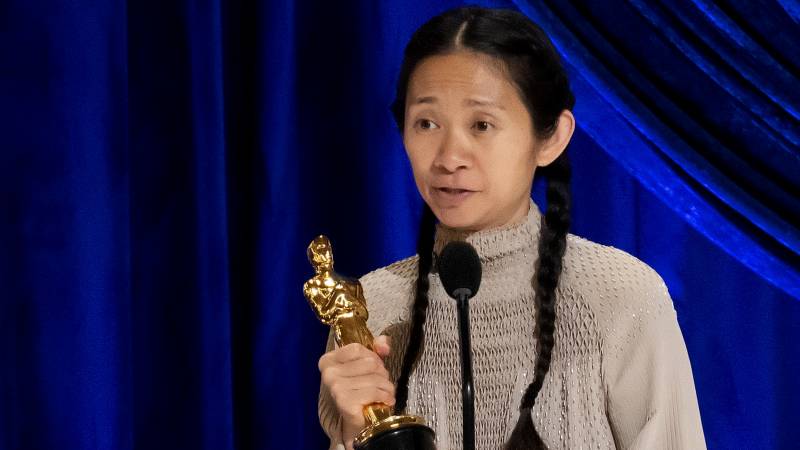1. Sometimes, there’s a reason things are done the way they are. Traditionally, Oscar night has ended with the announcement of the winner for best picture. This year, as the producers—including experienced risk-taker Steven Soderbergh—tried to mix it up a little in their train-station ceremony, they decided to change the order. They presented best picture to Nomadland, then best actress to Frances McDormand, then best actor to Anthony Hopkins for The Father. Hopkins wasn’t there, so presenter Joaquin Phoenix said the Academy accepted the award on his behalf, and because there was no host, that was pretty much it. Goodnight, everybody!
There were those who believed that this happened because there was a cynical calculation that the late Chadwick Boseman would win for Ma Rainey’s Black Bottom, and that a speech—perhaps from his wife, Taylor Simone Ledward—would be a particularly emotional closing note for such a difficult and unusual year. If true, it was a highly cynical calculation, and if not, it showed a lack of foresight not to realize it might appear to be one. And whatever the intent, the result was that, instead of ending with a celebration on stage, as has happened with films like Moonlight and Parasite and other worthy winners, the entire three-plus-hour show ended with an award given to someone who wasn’t even there.
Experimentation? Sure. Innovation? Of course. Breaking the structure without thinking through how it might come off? That’s a dangerous approach.
2. Relaxed speeches are… well, they’re more relaxed. Without a live orchestra to play people off, some speeches stretched out in a way that, early on, seemed like it might mean the show would go on all night. Some were a bit meandering; some a bit undisciplined. But they were charming, too. And in some cases, that extra space allowed deeply emotional thoughts to be shared without fear of suddenly being interrupted, as when Thomas Vinterberg accepted the best international feature award for Another Round and spoke movingly of the loss of his daughter in a car accident during production. It’s not just that Vinterberg got to speak, but that he got to speak without pressure and without the sense of a ticking clock. Whatever future Oscars ceremonies look like, it would be lovely to rethink the “speed through the list of names before you get cut off and don’t forget anyone important or powerful” format they often have.
3. Don’t be careless with In Memoriam. The In Memoriam segment is a production challenge: The audience tries to clap for certain people, the music has to feel appropriate, the visuals have to give at least a respectful amount of context for who each person was. Not so in 2021. Certainly, it was a year with a larger-than-average number of deaths, particularly among older people. But the answer to that would have been a longer segment. What they did instead was to cram the list into a segment that didn’t allow a lot of names to appear as much more than a flash on the screen—not even enough time for their names to be read. The math of dividing up a song, or parts of a song, to sync with a set of slides is not the art of it. That’s the beginning of it. The art of it is being careful not to accidentally disrespect the people you’re trying to honor.

9(MDAxOTAwOTE4MDEyMTkxMDAzNjczZDljZA004))

